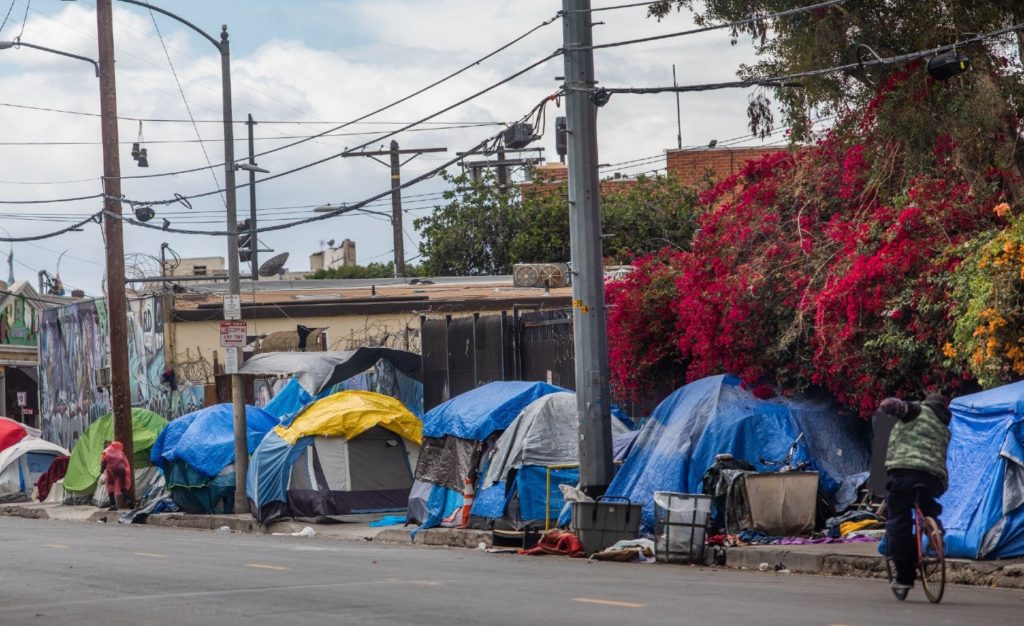Who Are the Homeless?

Rachel Cohen has a good run-down of a recent study in California that did demographic data on the homeless. There are some interesting findings here:
Their final report, the California Statewide Study of People Experiencing Homelessness, or CASPEH, includes nearly 3,200 administered questionnaires and 365 in-depth interviews collected between October 2021 and November 2022, including from urban, rural, and suburban areas.
“It’s incredibly difficult to do representative studies of people experiencing homelessness, so the fact that this study was able to obtain a large and representative sample of adults experiencing homelessness in California is impressive,” Elizabeth Bowen, an associate professor at the University of Buffalo who studies unhoused people, told Vox. The last large representative study of homelessness in the US was conducted nearly 30 years ago.
The CASPEH research provides firmer evidence for some things long associated with homeless individuals — namely, that lacking housing serves as a meaningful barrier to health care and income benefits, and is a key driver of discrimination in one’s daily life.
A quarter of participants reported an inability to access prescription medications for physical health conditions, and almost half reported their overall health as poor or fair. Nearly two-thirds had at least one chronic health condition.
The study also provided clarity on other experiences for those living without housing. Almost half reported symptoms of depression or anxiety, and 12 percent reported experiencing hallucinations. Participants cited frequent interactions with the police, with one-third of respondents spending at least one night in jail during their current episode of homelessness. Over a third reported losing belongings to confiscations in the prior six months, including important personal documents and medication.
One of the most staggering findings, even to experts on homelessness, was just how little notice most people said they had before they lost their housing, and precisely how low their incomes were at that point. In the six months prior to their homelessness, the median monthly household income of respondents was just $960. Leaseholders — meaning those who had a rental lease or a mortgage — reported a median of just 10 days notice that they were going to lose their housing. Non-leaseholders — referring to those living with family or friends — reported a median notice of just one day.
Most CASPEH respondents said they believed a monthly rental subsidy of $300 to $500 would have prevented their homelessness for a sustained period, or a one-time payment of $5,000 to $10,000. Nine in 10 respondents believed a housing voucher would also have staved off their slide into homelessness.
“I was really surprised by how little people thought it would have taken to prevent their homelessness,” Margot Kushel, the principal investigator of the study, told Vox. “Do we know if people are overly optimistic? Sure, they might be. But I sort of believe people are experts in their own lives and people really felt that, had they interrupted that cycle, they could have hung on, but once they became homeless everything else fell apart. Once they lost their housing, then their job opportunities declined and they got to a hole they couldn’t pull out of.”
I’d like to see more information on drug usage, which at least in some areas (especially Eugene and Portland, which dominates my experience with seeing the homeless), but while I have argued in the past that we have to get off our talking points around homelessness and realize that one specific thing (build more housing!) is not going to solve all of these problems, we do in fact need to build more housing, but also just take steps to ensure that people who are in, what admittedly is probably not very good housing, can actually just say in that housing. Anyone who says housing is not critically important to the homelessness problem is being dishonest, just like anyone who says that drugs aren’t critically important is also being dishonest. It’s a lot of stuff! But just basic housing vouchers, c’mon folks, if we can’t do this in blue states, what does liberal governance even mean in reality?
Also, this is the first large scale study of the homeless demographic in three decades? That’s just bad right there.


